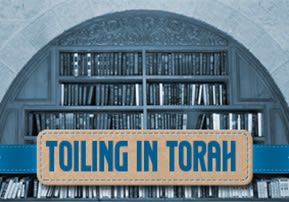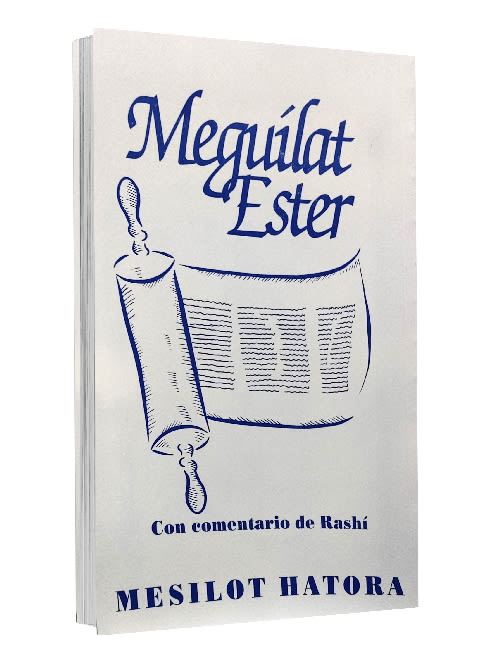
Bechukotai: Toiling in Torah
In a traffic court, a person won't be found innocent in the speeding charges filed against him if he claims that he was ignorant of the speed limit…

"If you will follow My laws and observe My commandments…"(Leviticus 26:3).
In the above passage, Hashem gives us two conditions for fulfilling His will: The first condition is to observe His commandments. Yet, one cannot observe His commandments if he or she doesn't know the myriad of details involved in each one, such as the well-intending individual who heard about the importance that the Torah places on visiting the sick, so he got in his car and visited three different hospitals on Shabbat. That's why Hashem listed the second condition, that we should follow his laws. Rashi interprets this passage as a directive to be toiling in Torah.
Why does the Torah list the second condition before the first condition? When our people received the Torah on Mount Sinai, they said "we shall do and we shall hear". In other words, first, we commit to observing Hashem's commandments and second, we commit to learning all about them. So wouldn't it have been more logical for Hashem to tell us, "If you observe my commandments and follow my laws", and not the opposite order?
Imagine that a person has a long-lost relative in Brooklyn whom he never met. He has no idea what his relative looks like, no address or no other identifying information. Randomly, he walks through the streets of Williamsburg, Crown Heights, Flatbush and Boro Park asking every man over sixty, "Are you my long-lost uncle from Argentina?" He approaches thousands of people, wastes days on end, but doesn't find his uncle. But, the moment he's equipped with a photograph and an address, or other identifying details, the search is a cinch.

Above image: Combat soldiers usually take advantage of rare off-duty time to catch up on their sleep. This Nachal Haredi soldier is toiling in Torah during every spare moment.
By the same token, when a person is outfitted with the knowledge of Torah, he doesn't have to waste years in confusion and uncertainty, making unnecessary mistakes right and left.
The same law applies in the Heavenly Court as in a worldly traffic court: ignorance of the law is no excuse for breaking the law. Indeed, one must pass a test in traffic laws before he's allowed to learn the practicality of driving. People consequently suffer all types of "accidents" in life because they don't know the laws involved in driving down the roads of life. Millions of Jews have no idea how to tie their shoes or wash their hands according to Torah. Millions don't realize the daily damage they cause themselves by failing to dress modestly, guard their eyes and inadvertently violate the Torah's laws virtually every minute of the day. Businessmen have no idea of the severity of laws that govern honest commerce, employee rights and usury. People walk into stores and take up the merchant's time when they have no intention of buying; are they aware that they are transgressing Torah? How many dozens of Torah transgressions does a person commit during a seemingly innocent phone conversation, because he never learned the laws that govern wholesome speech? The list is endless.
The evil inclination will let a person do almost anything, as long as he doesn't engage in daily Torah learning, especially the type of learning that teaches him how to live his daily life. It would be too great a task for the Evil Inclination to fight against every single mitzva a person does; so. The evil inclination works much more easily and efficiently than that. He finds reasons to undermine and sabotage a person's daily Torah learning, frequently with seemingly legitimate reasons. Before long, a person has lost all his connection with Torah, Heaven forbid. With no Torah, he has no antidote against the evil inclination, and is soon sinning right and left, Heaven forbid. Even worse, as our sages tell us, once a person repeats a transgression, his mind now construes it as a permissible act.
We can now understand why Rashi tells us that we should be toiling in Torah our whole lives. The Torah is slippery; it slips through our fingers and is easily forgotten. Hashem gave the Torah such a quality so that we must learn all the time. Otherwise, a person would learn the Torah once and then spend the rest of his life out at the lake fishing, That's not what Hashem wants. A spiritually and mentally healthy Jew must be toiling in Torah. If that's what Hashem wants, then it should be our desire as well. May Hashem help us taste the sweetness of Torah always, amen!







Tell us what you think!
Thank you for your comment!
It will be published after approval by the Editor.